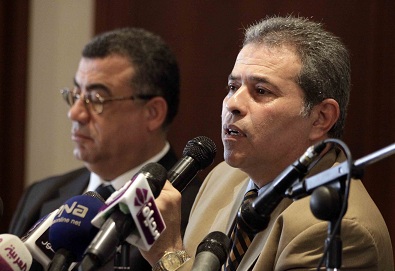Adam Miller croons into the microphone at the Imperial Boat in Zamalek on Saturday, punctuating phases in jazz history with chosen songs. The audience – a modest group of guitarists, jazz and music enthusiasts – is in turn moved and entertained by the depth and variety offered at the workshop.
Part of the four-day jazz festival that kicked off last Friday at the Sawy Culture Wheel, Miller’s presentation punctuated the long history jazz carries with songs. Festival organizer Amro Salah said the event was meant to bring jazz to the masses. And judging by the numbers that showed up, a mass event it was indeed.
“Jazz is a cultural phenomenon. It doesn’t exist in a bubble. It’s an expression of how we feel, said Miller, revealing how influences of rock-and-roll, funk and soul were all eventually incorporated into contemporary jazz.
As for its oriental expression, bassist Samer George says, “Try it if you like it. If you don’t like it; don’t try to classify it, just buy another CD.
Intelligently organized to pull crowds with popular local bands, the event also introduced the masses to international bands in each day’s line-up. Egypt’s popular swing outfit Riff Band performed on the first day, before the sassy, sexy Thomas Motter and the Moon Base took center stage.
Hailing from Germany, the funk/electronic/fusion band had crowds uninhibitedly dancing to their whim as the Cameroonian Menoosha Susungi talk-sang to the audience and had them perform a hip-grooving dance with her, while guitarist Danny Martinez-Labana had them sing along to the groovy lyrics of “Balialo Mulata. Many gathered around the stage, turning the riverside hall into a music ghetto.
At the other venue of the fest, the Cairo Jazz Club, the band got wilder with numbers such as “Do Me like a Lion, complimented by the animated performance of the elfin Turkish vocalist Fatma Tazegul.
Among the other activities organized by the festival was a vocals and guitar workshop on Imperial. Registrants received the workshop for free, mostly hearing about it through Facebook advertisements, where the event logo sported a pharaoh with a sax.
Egyptian jazz pioneer Yehia Khalil was given a lifetime achievement award on the opening day. The first session of the fest was dedicated to musician Salah Bahgat.
The Latin sounds of Cocoon enchanted the audience on Saturday, followed by a flute performance by Grammy-award winning Bulgarian musician Theodossi Spassova.
Line-ups also included Grammy award winner Fathy Salama. The concert featured a ney (flute) player that “took too much money, said Salama to the crowd’s amusement.
Alongside the event comes the creation of a “Jazz Society of Egypt, again free and open to all, with an intention of preserving the genre and attracting more audiences.
“Jazz is building itself from simple things, Rashad Faheem said in the “Piano Clinic workshop, limiting himself to playing only white notes on the piano. Slowly, he introduced one black key after another, and then suddenly white and black were jazzed up together.
Perhaps the most technical understanding of jazz was offered by bassist and engineering student Shaheer Sherif.
“Jazz is the evolution of blues, says Sherif, “if you add two notes (one flat or one sharp) to the (minor) pentatonic scale, it becomes the blues scale.
Oriental music, in Sherif’s opinion, is characterized by the use of the quarter of a note, (and sometimes eighth of a note) that instruments like the ney, qanun (stringed-instrument like a zither), or oud (lute) produce.
Jazz represents a freedom beset by boundaries, originating slave songs in the paddies with a mock-play on Western instruments, to breaking out of classical conventions by adding dissonant notes that create euphonic melodies.
“Jazz happens in the moment and it’s different every time, said Miller, echoing a sentiment that jazz musicians frequently ascribe to their form.
With moments varying from the almost smart experimental jazz of Salama, the gypsy forms of Spassov, to the raunchy Thomas Motter, and the perhaps anachronistic innocence of vocals of Riff Band and Adam Miller, jazz had many a moment at the festival. Closing with Eftikasat and the ever-popular Wust El-Balad, the event could not have hoped for a better assembly. And it is only the first year.
With many freebies and crowd-pullers booming under the bridge, the event did far more than deliver musical moments to the ripples on the Nile.


